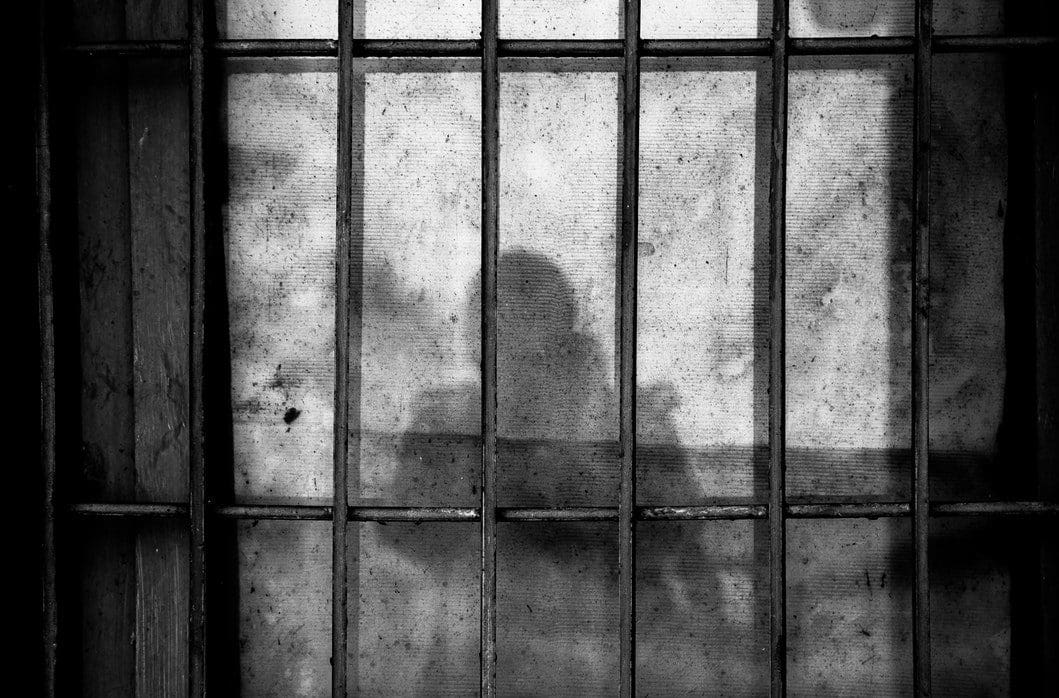“Greater love has no one than this, that someone lay down his life for his friends.” (John 15:13)
Christ provides the clearest and greatest picture of what it looks like to be someone’s friend. He gives all of himself for others—that’s true friendship. But friendship is not a one-way road. The law of friendship, similar to Newton’s third law of motion, is that every act of friendship deserves an equal reaction.
When we talk about friendship and the Bible, we usually highlight relationships between friends that exemplify this reciprocal humility and self-sacrifice. David and Johnathan. Naomi and Ruth.
But the Bible is full of relations that either fell apart or faced a great trial due to inaction. There are plenty of friendships that were, in all honesty, rocky relationships at best. I like to look at a few rocky friendships every now and again to discover what true friendship really is by considering what it is not.
One such rocky friendship can be seen in the story of Joseph and the cupbearer in Genesis 39-41.
Joseph in Jail
Joseph had been wrongly accused, but it did not matter. He was stuck in jail.
Even so, Joseph was quickly seen as someone who didn’t belong there; The keeper of the prison trusted him and put him in charge of everything. This was likely a great honor, but he was still in jail, away from freedom.
Sometime later, a cupbearer and baker were sent to jail for committing an offense against Pharaoh. For whatever reason, they weren’t placed in the normal spot, but “[Pharaoh] put them in custody in the house of the captain of the guard” (Genesis 40:3).
This “captain of the guard” had already put Joseph in charge of everything else and so he “appointed Joseph to be with them” (Genesis 40:4).
While Joseph attended to these men, they both had peculiar dreams. Joseph, knowing all things belong to God, offered to interpret them.
If you know the story, you know that both dreams would change the dreamer’s life, one for good and one for bad. The baker’s dream was fatal: Pharaoh would execute him in three days. The cupbearer’s dream was great: He would be Pharaoh’s personal cupbearer.
Joseph the Friend
Joseph was an important person. He had all the duties of the “captain of the guard” after all. Genesis 39:22-23 says, “Whatever was done [in the prison], he was the one who did it. The keeper of the prison paid no attention to anything that was in Joseph’s charge.”
In other words, Joseph had as much power and prestige as a prisoner could have.
But when these men had dreams that they could not decipher, Joseph noticed that they were troubled: “Why are your faces downcast today?” (Genesis 40:7).
Here, we can see Joseph’s love for others. Joseph close paid attention to their moods—he knew them well enough to tell they were downcast.
Joseph genuinely cared for these men, and he sacrificed a moment of his day to stop and ask: “You seem down today. What’s up?”
Do you do this with the people you see regularly? Do you know them well enough to tell when they are feeling down?
But Joseph did more than just ask. He also wanted to remedy the situation. It would not have been enough for him to say, “Sorry to hear about those dreams. Sounds complicated! I’ve got plenty more prisoners to see, however. Catch you later!”
He was there until their issue was resolved. And the resolution was far from an easy one. On the one hand, he got to tell the cupbearer great news. On the other hand, he had to tell the baker terrible news.
If I were in that situation, I would have hesitated to tell him the truth. And this is where a rocky friendship can start—with
But Joseph loved God’s truth, and he loved these men like friends. Loved them enough to tell them the direct, unfiltered truth.
Joseph Forgotten
In friendship, the natural response to a kindness by one friend is an equal reciprocation of that kindness by the other. Joseph looked for reciprocation from his friend, the cupbearer, but what he asked for was far less than the kindness he originally showed:
“Only remember me, when it is well with you, and please do me the kindness to mention me to Pharaoh, and so get me out of this house.” (Genesis 40:14)
Joseph isn’t riding on the cupbearer’s coat tail. He’s not looking to gain a job in Pharaoh’s house. He’s just asking for help in getting out of prison! Anyone who lived in that prison knew Joseph did not belong there anyway!
Genesis 40:23 tells us how the cupbearer responded to Joseph’s request, how he acted when he should have reciprocated kindness back to Joseph:
“Yet the chief cupbearer did not remember Joseph, but forgot him.”
The next verse adds even more weight to this slight:
“After two whole years…” (Genesis 41:1)
Consider Joseph’s position. He cared for his friend, noticed when he was down, and sought to encourage him. He asked his friend to mention his position to Pharaoh, and then his friend goes up out of prison.
Surely he would be free tomorrow. But tomorrow goes by and Joseph is still down there. And then the first week goes by too without a word from above.
Maybe the cupbearer needed some time to get back on Pharaoh’s good side, Joseph may have thought, but surely, I’ll be free the second week. But that one goes by too and so many more. Perhaps Joseph wondered:
What has become of my friend who knows I am here and is now with Pharaoh?
The Cupbearer Remembers
Then the chief cupbearer said to Pharaoh, “I remember my offenses today… A young Hebrew was [in prison] with us, a servant of the captain of the guard.” (Genesis 41:9, 12)
After all this time, the cupbearer finally remembers. His memory is assisted by a familiar conflict: Someone had a dream that they cannot interpret. This time it is not the cupbearer, but Pharoah himself.
I feel like it is easy to criticize the cupbearer for his inaction. He was a bad friend for two years. Yet in this moment he does have to do something difficult. In remembering Joseph, he also had to confront his offense of forgetting him.
For some, having to confront such an offense would be reason enough to forget Joseph once and for all. The cupbearer might have thought, I cannot do it. If I say something, then everyone will know my injustice toward this person who considered me a friend.
But as Genesis tells us, the cupbearer did the right thing to try to fix the rocky friendship. He owned his offense, and he reciprocated kindness back to Joseph, belated as it was.
Rocky Friendship Restored through Remembrance
We are not told if Joseph and the cupbearer talked again. Considering Joseph was made to be second-in-command over everything (Genesis 41:40), I think it is likely that his path would have again crossed with the chief cupbearer.
And if Joseph’s forgave his brothers, showing he is a man of grace, I believe Joseph would have forgiven the cupbearer and would have redeemed their rocky friendship into a true friendship.
As I worked on this article, I reflected on how Joseph reminds me so much of Jesus Christ.
More than wrongly accused, Jesus paid the full penalty for our sins, dying in our place, an act of friendship that we can never repay. His request to his disciples, and to us, is about remembrance (Luke 22:18-20; 1 Corinthians 11:23-25). But we forget Christ—we sin and we forget what he has done for us on the cross, turning a good relationship into a rocky friendship.
Will you forget him still? Or will you, today, be like the cupbearer and say:
“I remember my offenses today. Jesus Christ died in my place to save me from my sin, and I shall remember him today and forevermore so he can be the Lord over my life.”



